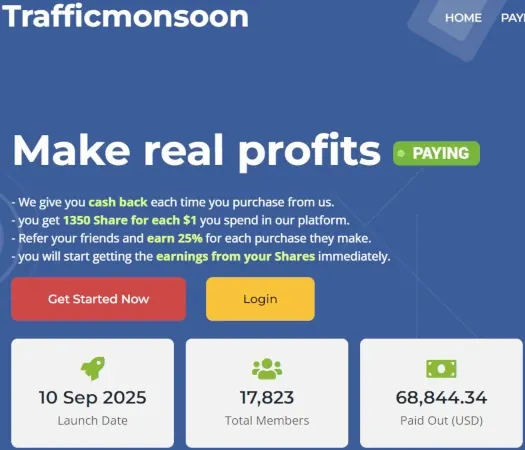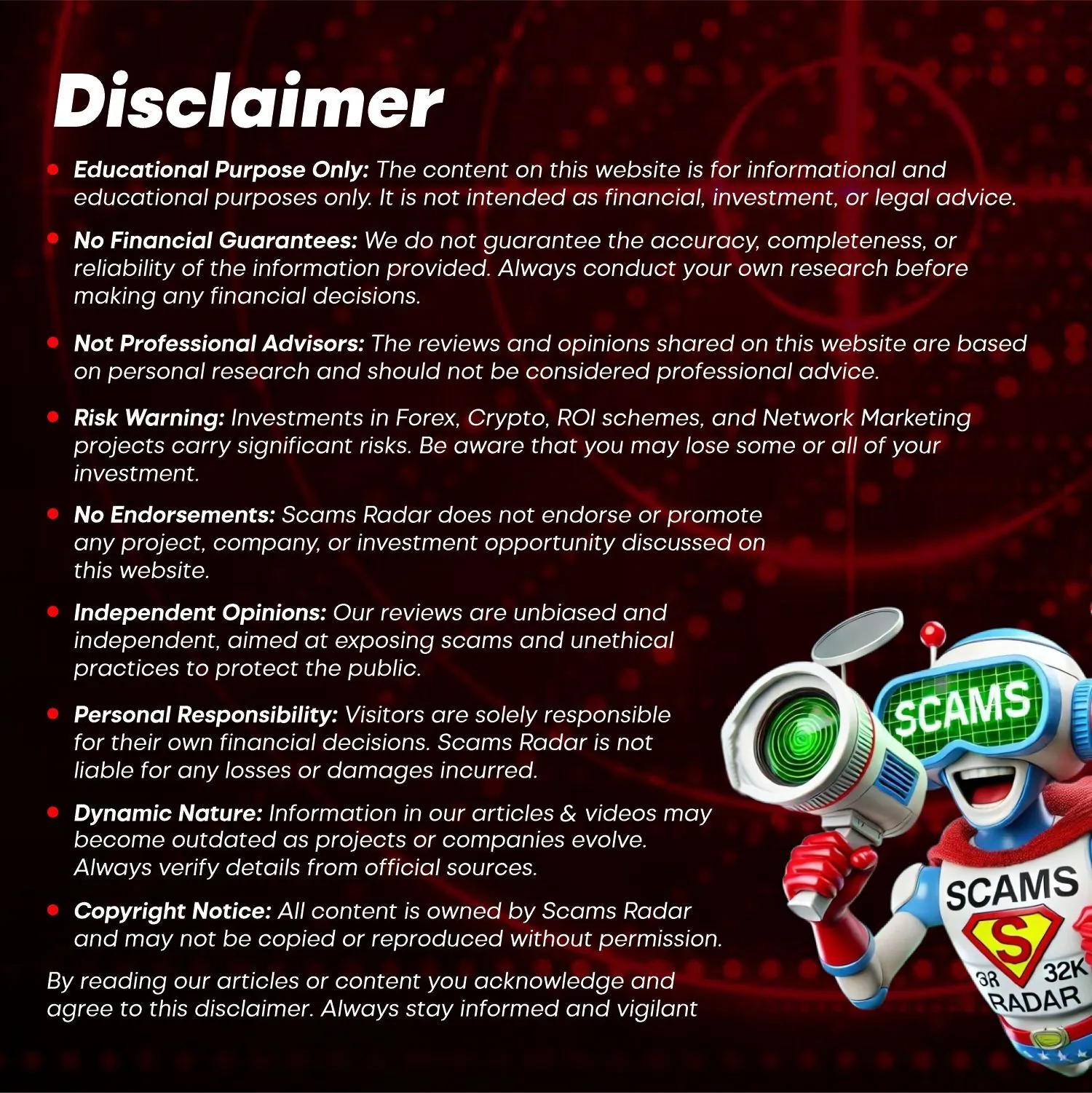
Traffic Monsoon, a notorious Ponzi scheme that defrauded over 162,000 investors of $207 million from 2014 to 2016, was shut down by the SEC in 2016, per SEC filings and court records. Founder Charles Scoville was sentenced in early 2019 to 10 years in prison for securities fraud and money laundering, following a guilty plea. However, full details of his plea agreement were not publicly disclosed due to a mental health-related breakdown before incarceration. The scheme sold “AdPacks” for $50, promising up to $1,000 in advertising credits and revenue sharing, but payouts relied on new investor funds. Scoville’s current status is unknown, but he has no involvement in reboots, per.
In 2022, scammers attempted a revival on trafficmonsoon.org, mimicking the original model with AdPack purchases and referral commissions, but the site was quickly identified as fraudulent and now hosts auto-download malware, per. Users are advised to avoid the domain entirely, as it poses security risks including potential data theft or ransomware, per. This reboot cited similar promises of high ROI from ad traffic, but collapsed amid warnings from regulators like the FTC, per.

On September 5, 2025, scammers registered trafficmonsoon.org again, launching a second revival with a nearly identical pitch: $1 AdPack investments promising up to $50 ROI, plus a 25% single-level referral commission, per. The site features a fictional CEO, Adrian Gale Mercer, depicted with an AI-generated image based on Scoville’s likeness, claiming to “revive the vision” of Traffic Monsoon, per. The platform cites “traffic arbitrage” for payouts, but analysis shows no legitimate ad business, mirroring the original Ponzi mechanics, per. Traffic is low, with monthly visits under 1,000, primarily from the U.S. and Eastern Europe, per SimilarWeb estimates. No regulatory shutdown has occurred yet, but FTC monitoring for MLM Ponzi indicators is likely, per.
Australian authorities issued a fraud warning in October 2025 against a Vortic United Ponzi reboot, citing similar tactics like referral-heavy investments and fake CEO personas, per. Similarities in domain registration patterns and marketing language suggest the same scammers may be behind both, though no direct links are confirmed, per. This fits a trend of “zombie Ponzi” revivals, where defunct schemes are cloned using AI for credibility, per.
Traffic Monsoon’s reboots exploit nostalgia for quick returns, but they risk total loss and malware exposure, per. Original victims can file claims through the SEC Receiver at trafficmonsoonreceiver.com, with a deadline extended to January 2026 for the 2016 case, per. For new victims, report to the FTC at reportfraud.ftc.gov or SEC at sec.gov/complaint. BTC ($113,234) and ETH ($4,070) remain unaffected, per CoinMarketCap. Diversify into regulated assets like USDC or ETH with stop-losses below BTC’s $112,000, per TradingView. Follow @TheBlock__ on X for scam alerts. These reboots underscore the persistence of Ponzi schemes in crypto, but vigilance and reporting can disrupt them, per.
